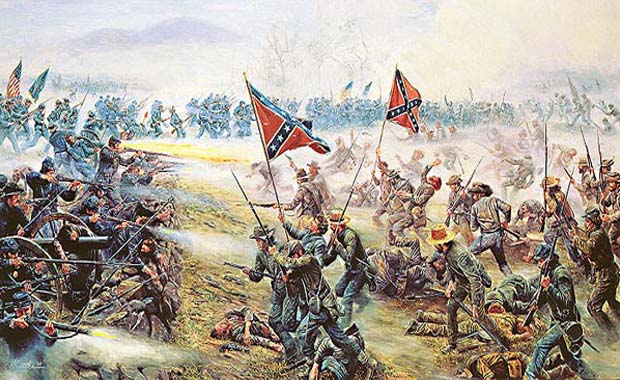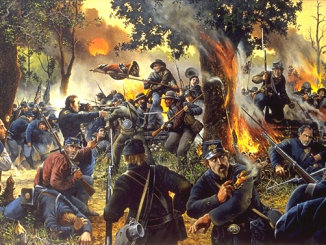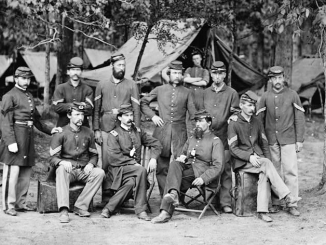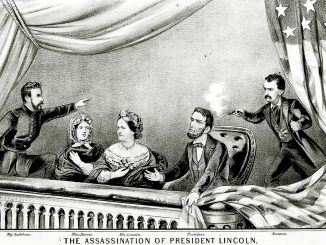
That chance came when McClellan’s forces were straddling the Chickahominy River. The swampy ground around the river was difficult to maneuver, and the river was now a raging torrent from the spring rains. A major storm on May 31 threatened to cut the only bridge links between the two wings of the Union army.
Widget not in any sidebars
Johnston attacked one of McClellan’s corps south of the river on May 31 in a promising assault. The plan called for three divisions to hammer the Federal corps from three sides, but the inexperienced Confederates were delayed and confused. By the time the attack came, McClellan had time to muster reinforcements and drive the Rebels back. A Confederate attack the next day also produced no tangible results. The Yankees lost 5,000 casualties to the Rebels’ 6,000.
But the battle had two important consequences. McClellan was horrified by the sight of his dead and wounded soldiers, and became much more cautious and timid in battle, actions that would eventually doom the campaign. And since Johnston was wounded during the battle’s first day, Robert E. Lee replaced him. Lee had been serving as Confederate President Jefferson Davis’ military advisor since his undistinguished service in western Virginia during the war’s first year. The history of the war in the eastern theater drastically changed as Lee ascended the ranks. His leadership and exploits soon became legend.







Be the first to comment